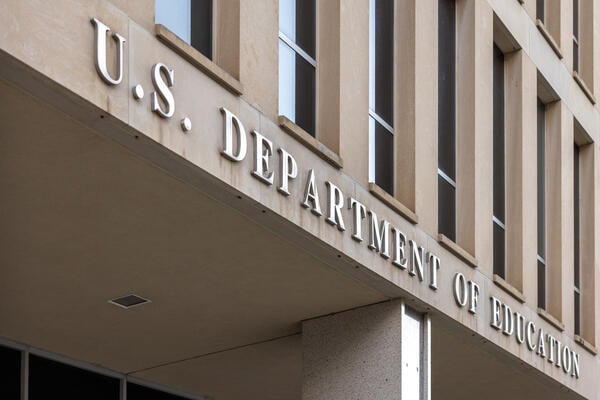The department opened applications for the Fund for the Improvement of Postsecondary Education program Monday.
Greggory DiSalvo/iStock/Getty Images Plus
The Education Department announced its priorities for a key higher education grant program Monday, reinforcing its focus on accreditation reform, artificial intelligence, civil discourse and short-term training programs.
The grant, otherwise known as the Fund for the Improvement of Postsecondary Education (FIPSE), is overseen by the Office of Postsecondary Education and was created by Congress in 1972 to “improve postsecondary educational opportunities.”
Each administration can set its own priorities within the criteria outlined in the statute to determine how it will allocate FIPSE awards with each new competition. The latest competition, announced Monday, includes four categories, one for each priority, with award amounts ranging from $7 million to $60 million.
Applications are due Dec. 3 and the department expects to distribute final awards by Dec. 31. But it’s unclear who will conduct the competition, as the majority of OPE staff were laid off in the department’s most recent reduction in force and one of the awards focuses on workforce Pell, a new grant program that has yet to undergo regulatory negotiations.
A congressional budget bill that passed the Senate Sunday and aims to end the government shutdown may reverse this latest RIF, but as of Monday night it had yet to be finalized. And even then it is uncertain how and when staff members who were let go will return. One source from the department’s union told Inside Higher Ed they are skeptical that staff members will be fully reinstated even if the bill does pass Congress. The negotiated rule-making session for workforce Pell won’t start until Dec. 8 and is slated to run through Jan. 9.
Still, Education Under Secretary Nicholas Kent is confident that this grant funding will be sent out on time and advance higher education access as intended.
“Under the Trump Administration, we are witnessing a transformative shift in higher education, one that is setting a new course for a brighter future. From restoring freedom of speech and fostering viewpoint diversity, to reimagining an archaic accreditation system and prioritizing workforce-driven programs, there is a growing recognition that bold, seismic change is essential to restoring confidence in our Nation’s higher education system,” he said in a news release. “These priorities will ensure that grantees have the resources needed to build on our Administration’s successes and support initiatives that will continue to enhance the educational experience for all students.”
4 Key Priorities for Higher Ed
- Artificial Intelligence ($50M): This priority will support grant applicants that use AI to “enhance teaching, learning and student success in education” and “broaden access to AI and expand computer science course offerings.”
- Civil Discourse ($60M): Awards in this category will support seminars, speaker series, conferences, debates and other learning opportunities that “foster respectful deliberation and debate on college and university campuses, where free expression has too long been eroded by censorship, harassment and even violent unrest.”
- Accreditation ($7M): This priority will support college and university efforts to “change their current accrediting agency” as well as “the development and launch of new accrediting agencies.”
- Short-Term Programs ($50M): Awards in this category go toward the development of new programs that “meet the eligibility requirements of the Workforce Pell Grants program” as well as expanding existing ones.


